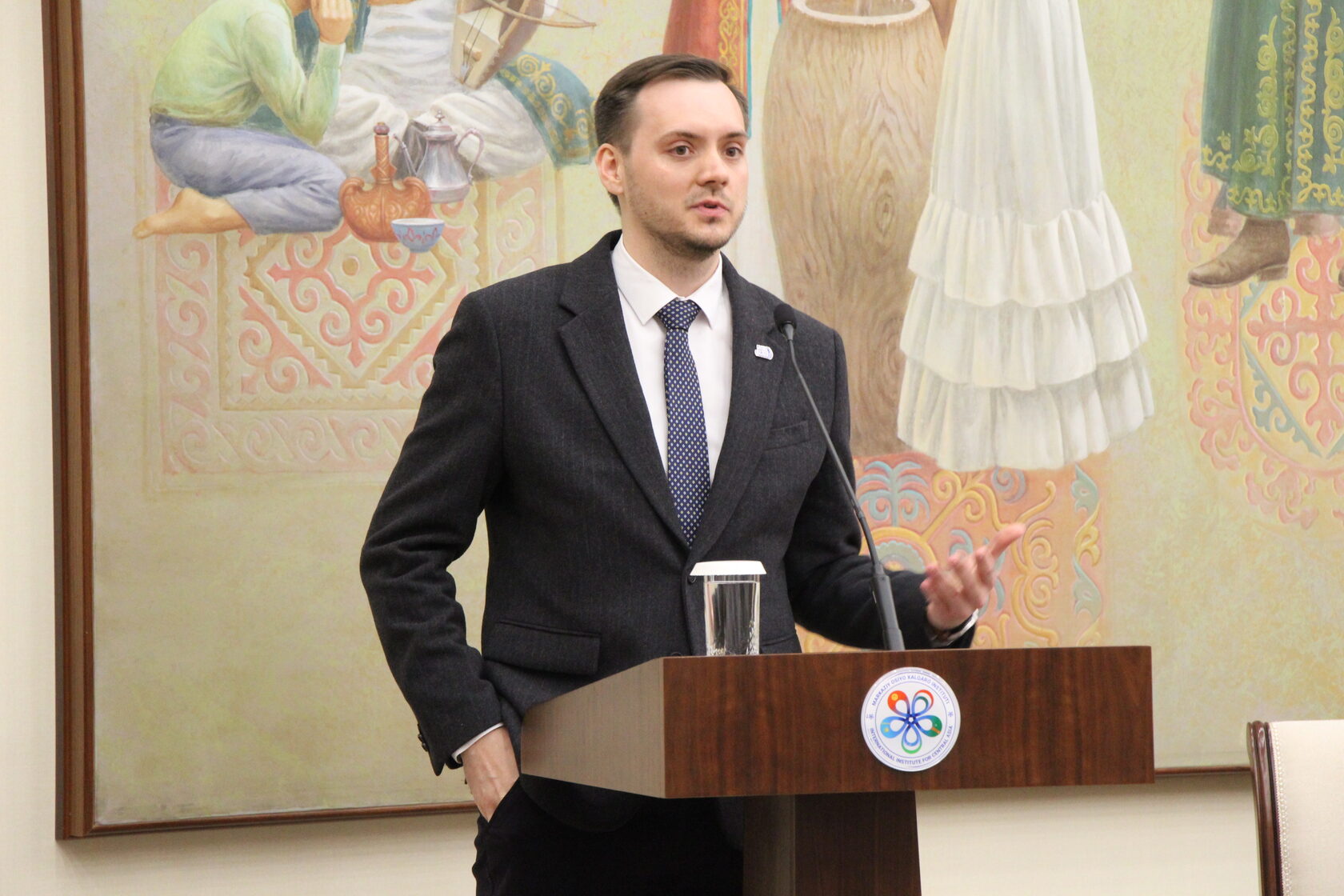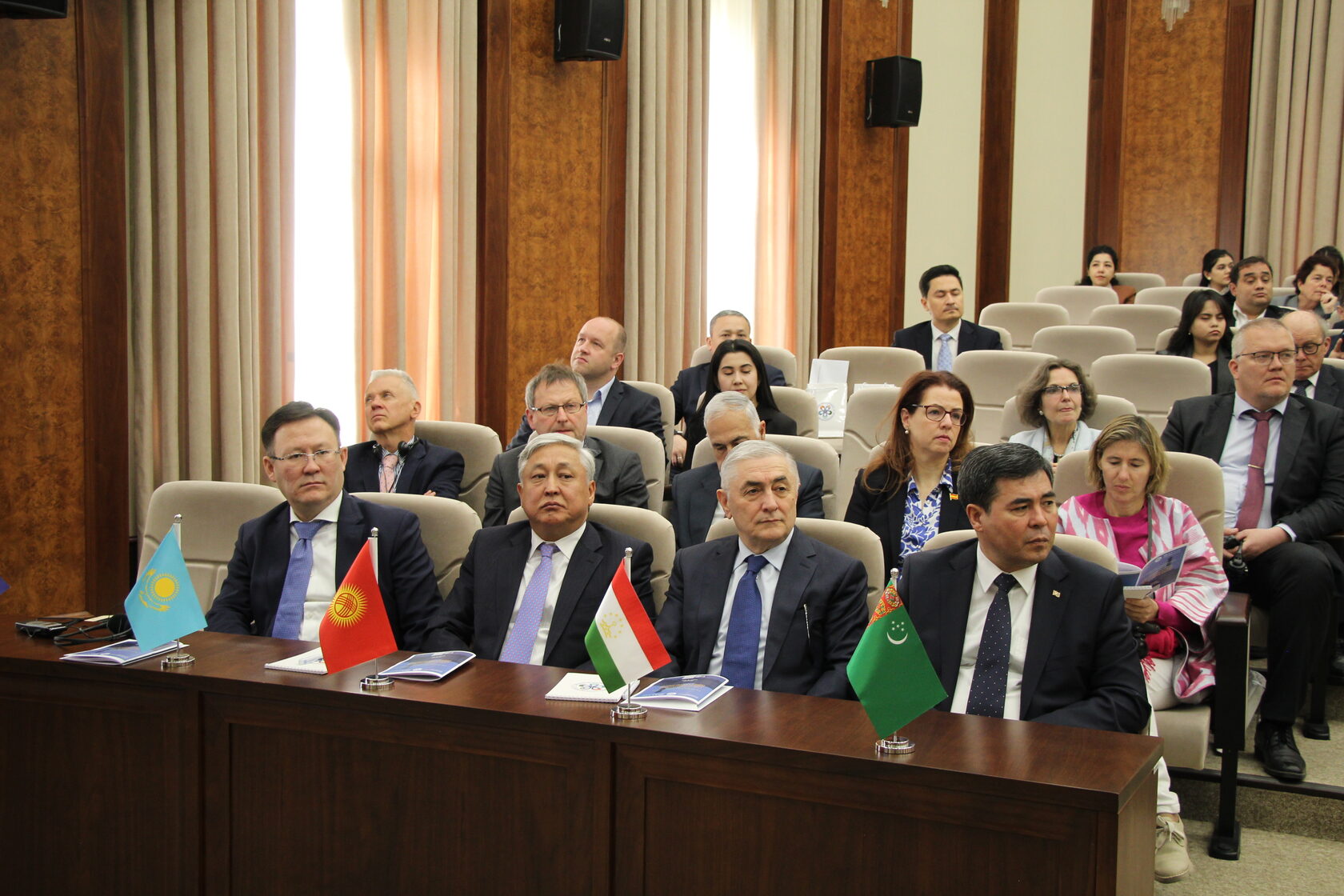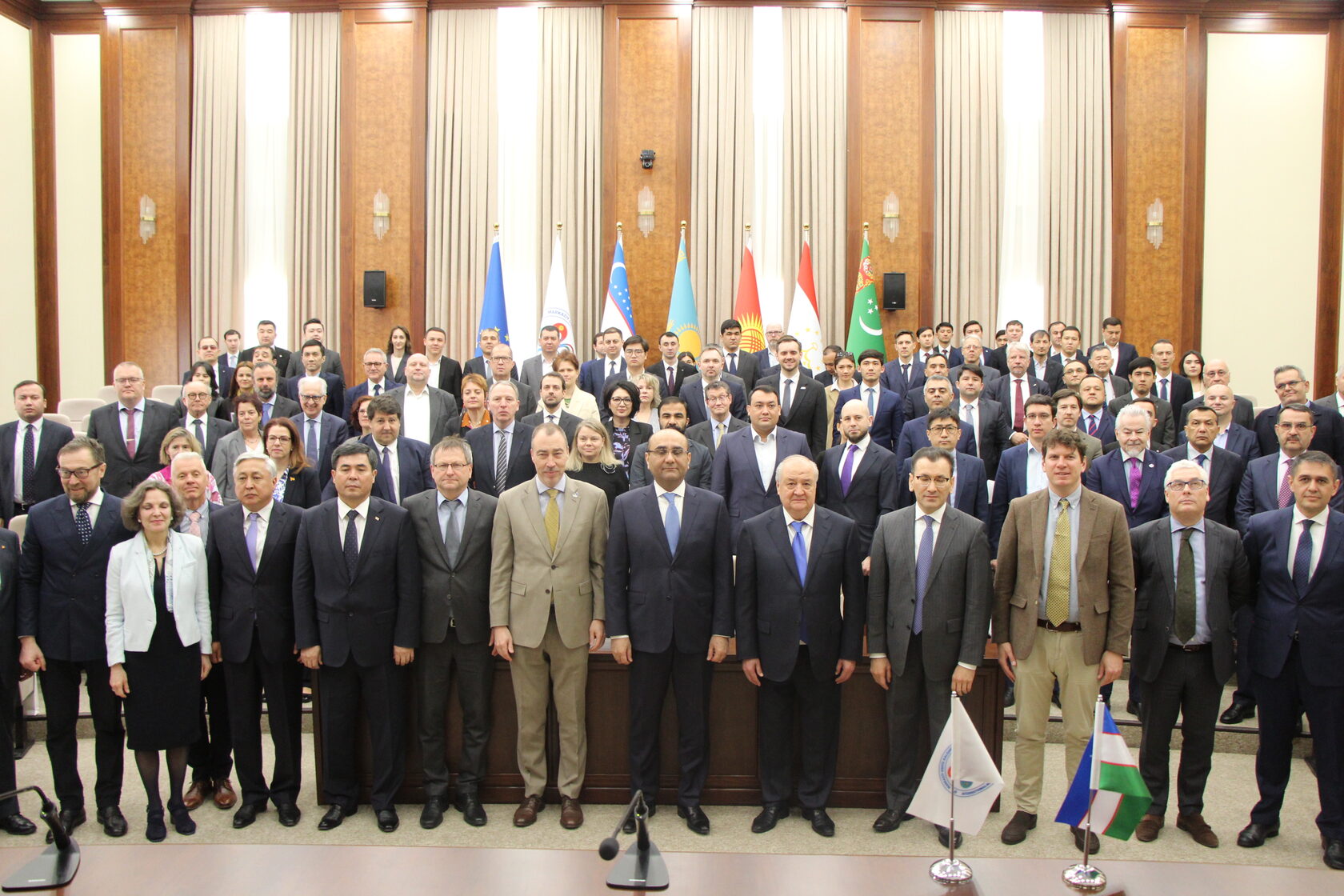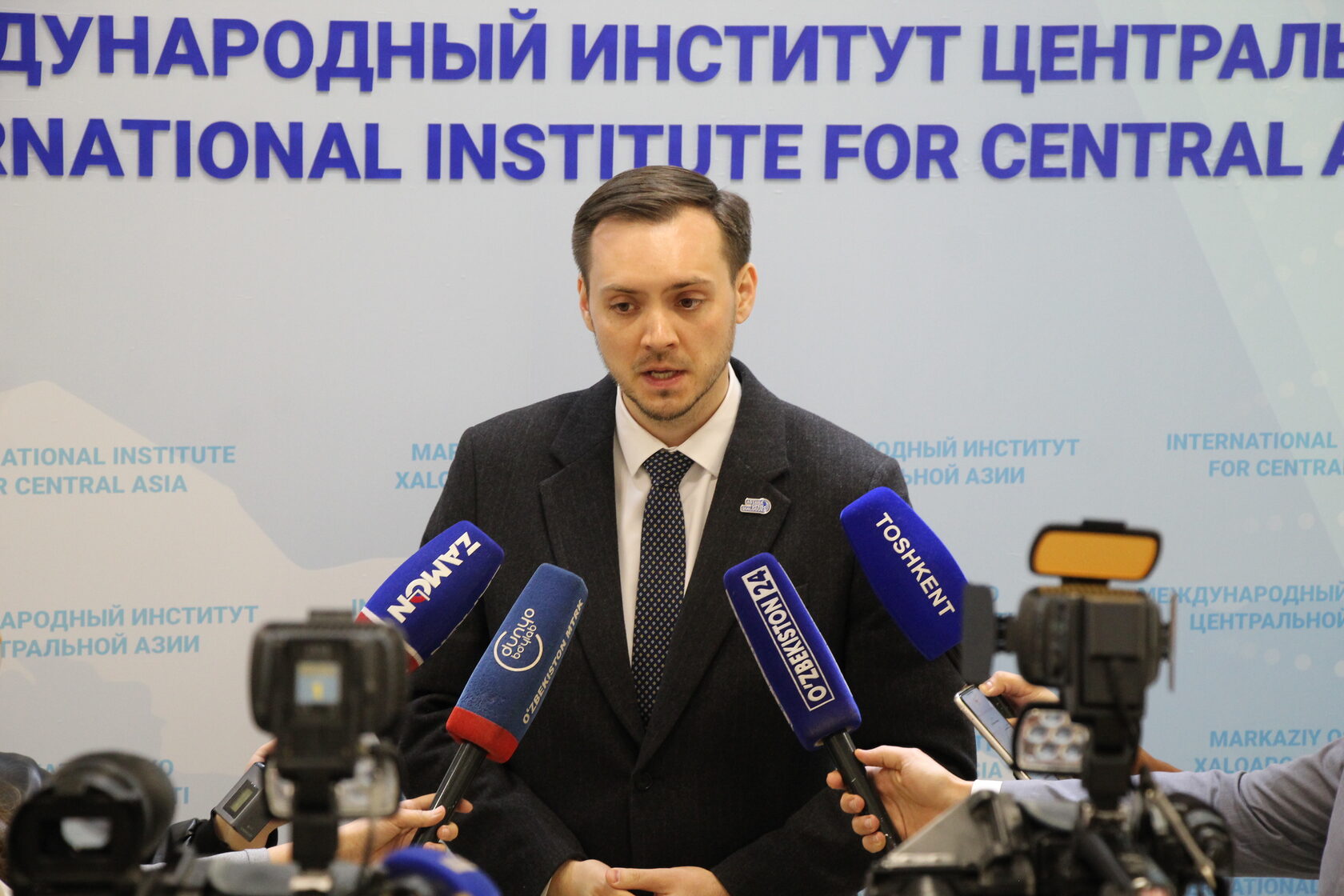Think Tank Forum in Tashkent as a step toward strategic dialogue
Amid Europe’s growing interest in Central Asia, the Central Asia – European Union Think Tank Forum took place in Tashkent. One of the speakers at the expert meeting was Alexandr Danilov, co-founder of Astana Open Dialogue. The event was organized by the International Institute for Central Asia and was attended by leading experts, analysts, and representatives of research organizations from across the region and the EU.
Astana Open Dialogue presents key insights from the event.
The expert engagement format goes beyond traditional diplomatic contacts, allowing not only for discussions on the current agenda but also for the development of concrete recommendations for the upcoming first Central Asia – European Union Summit, set to take place in Samarkand. The discussions focused on critical areas of cooperation, including digitalization, logistics, energy, and human capital development.
Amid Europe’s growing interest in Central Asia, the Central Asia – European Union Think Tank Forum took place in Tashkent. One of the speakers at the expert meeting was Alexandr Danilov, co-founder of Astana Open Dialogue. The event was organized by the International Institute for Central Asia and was attended by leading experts, analysts, and representatives of research organizations from across the region and the EU.
Astana Open Dialogue presents key insights from the event.
The expert engagement format goes beyond traditional diplomatic contacts, allowing not only for discussions on the current agenda but also for the development of concrete recommendations for the upcoming first Central Asia – European Union Summit, set to take place in Samarkand. The discussions focused on critical areas of cooperation, including digitalization, logistics, energy, and human capital development.

Key discussion topics
During the forum, several issues were raised that will directly shape the future partnership between the EU and Central Asia:
These issues are not only economic but also geopolitical. Central Asia is emerging as a key player in global trade, transport, and technology networks. However, moving from theoretical discussions to real economic projects requires eliminating barriers that hinder cooperation.
During the forum, several issues were raised that will directly shape the future partnership between the EU and Central Asia:
- Digitalization and Artificial Intelligence – How can cooperation in the IT sector be effectively structured to ensure that regional innovations gain access to the European market?
- Geo-logistics and Infrastructure – How to accelerate the development of the Middle Corridor and reduce logistical costs?
- Investment in Critical Resources –How to build strategic partnerships in the energy, mining and rare earth metals sectors?
- Human Capital and Civil Society Development – What steps should be taken to expand educational and expert exchanges?
These issues are not only economic but also geopolitical. Central Asia is emerging as a key player in global trade, transport, and technology networks. However, moving from theoretical discussions to real economic projects requires eliminating barriers that hinder cooperation.

Central Asia: From a raw materials supplier to a technology partner
One of the key takeaways from the discussions was the changing perception of Central Asia in Europe. Historically, the region has been viewed primarily as a supplier of raw materials. However, today it is capable of offering competitive solutions in areas such as IT, fintech, logistics, and energy.
To fully realize this potential, several strategic questions need to be addressed:
One of the key takeaways from the discussions was the changing perception of Central Asia in Europe. Historically, the region has been viewed primarily as a supplier of raw materials. However, today it is capable of offering competitive solutions in areas such as IT, fintech, logistics, and energy.
To fully realize this potential, several strategic questions need to be addressed:
- How should Central Asia position itself in European markets?
- How can trade barriers be reduced?
- How should Europe adapt its strategy towards Central Asia?
- How can economic integration be accelerated?

Pragmatism as the key to cooperation
The dialogue between Central Asia and the EU is entering a new phase, and the Tashkent meeting demonstrated that both sides share an interest in deeper cooperation. However, at this stage, much of this engagement remains declarative rather than practical.
The Think Tank Forum proved its effectiveness in generating concrete proposals. The key challenge now is ensuring that these ideas are reflected in the upcoming Samarkand Summit. If the participants manage to move from discussion to concrete action—for example, signing agreements on reducing trade barriers or launching new joint projects—this could mark a breakthrough in EU – Central Asia relations.
The high-level organization of the Tashkent Forum and the substantial depth of discussions reaffirmed that Central Asia is ready to become not just a partner to Europe but a fully integrated player in the global economic system. The question now is how quickly the EU can adapt to these new realities and develop a strategy that is based not only on values but also on pragmatism.
The dialogue between Central Asia and the EU is entering a new phase, and the Tashkent meeting demonstrated that both sides share an interest in deeper cooperation. However, at this stage, much of this engagement remains declarative rather than practical.
The Think Tank Forum proved its effectiveness in generating concrete proposals. The key challenge now is ensuring that these ideas are reflected in the upcoming Samarkand Summit. If the participants manage to move from discussion to concrete action—for example, signing agreements on reducing trade barriers or launching new joint projects—this could mark a breakthrough in EU – Central Asia relations.
The high-level organization of the Tashkent Forum and the substantial depth of discussions reaffirmed that Central Asia is ready to become not just a partner to Europe but a fully integrated player in the global economic system. The question now is how quickly the EU can adapt to these new realities and develop a strategy that is based not only on values but also on pragmatism.

